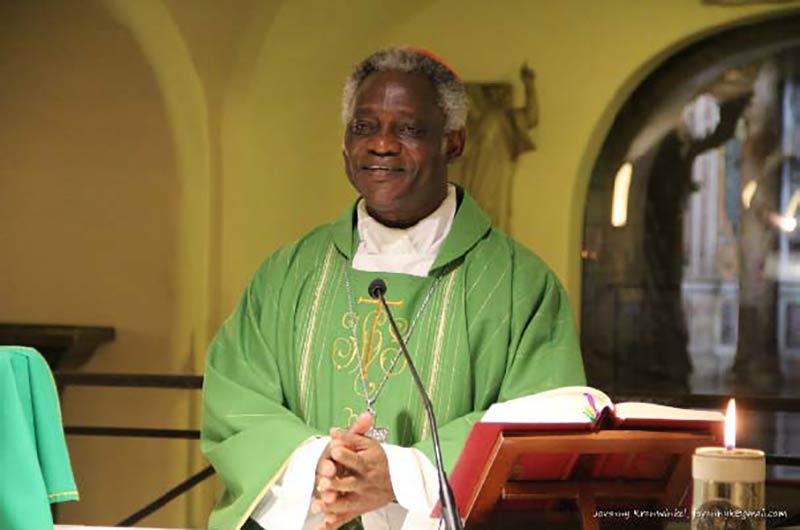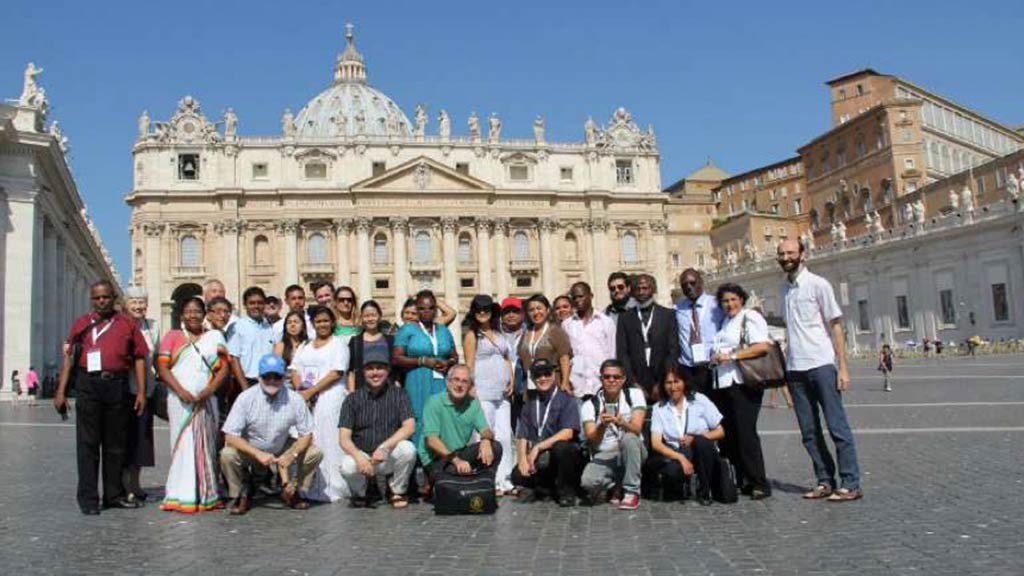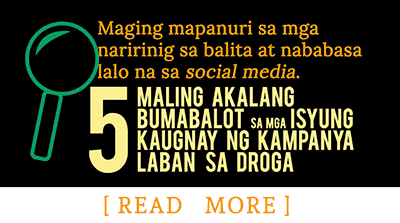An open letter of the communities affected by mining operations, received in Rome by the Pontifical Council for Justice and Peace
On July 17-19, 2015 the Pontifical Council for Justice and Peace (PCJP), in collaboration with the Latin American network Churches and Mining, organized a meeting in Rome with representatives of communities affected by mining activities titled “In union with God, we hear a cry”.
There were participants from 18 countries in the world: Chile, Peru, Brazil, Colombia, Honduras, Guatemala, El Salvador, Dominican Republic, Mexico, United States, Canada, Switzerland, Italy, Mozambique, Ghana, Democratic Republic of the Congo, India and the Philippines.
This meeting was highly anticipated by our communities, which are increasingly organizing to be able to denounce grave human rights violations, environmental, contamination, community divisions, uprooting from territories, sicknesses, loss of culture, prostitution, alcoholism and drug addiction, loss of their own economy, and the ties to organized crime that are generated by the mining industry. The communities are also organizing to establish common strategies of resistance and alternatives.
“The objective of this meeting is to acknowledge your human dignity”, affirmed Cardinal Turkson, President of the PCJP. Pope Francis has defined it “the immense dignity of the poor” (Laudato Sí – LS 158).
The Catholic Church is increasingly confronting the gravity of the impacts of mining, the profound wounds to the heart of the earth and the communities, which are a symptom of the “one complex crisis that is both social and environmental” (LS 139).
In his letter to the meeting participants, Pope Francis described the context of the mining conflicts with great insight and empathy: “You wished to gather here (…) to echo the cry of the many people, families and communities who suffer directly and indirectly as a result of the consequences, too often negative, of mining activities. A cry for lost land; a cry for the extraction of wealth from land that paradoxically does not produce wealth for the local populations who remain poor; a cry of pain in reaction to violence, threats and corruption; a cry of indignation and for help for the violations of human rights, blatantly or discreetly trampled with regard to the health of populations, working conditions, and at times the slavery and human trafficking that feeds the tragic phenomenon of prostitution; a cry of sadness and impotence for the contamination of the water, the air and the land; a cry of incomprehension for the absence for inclusive processes or support from the civil, local and national authorities, which have the fundamental duty to promote the common good.”
Cardinal Turkson concluded the event expressing to the communities: “We are aware of your isolation, through human rights violations, persecution, and an imbalance of power.”
Through this meeting, the suffering of the communities received valuable visibility and dissemination into the global public opinion.

Reflecting on the Social Doctrine of the Church, we participants arrived at the conclusion that the Church cannot simply be a neutral mediator between the communities and the companies. “Where injustices abound and growing numbers of people are deprived of basic human rights and considered expendable, the principle of the common good immediately becomes, logically and inevitably, a summons to solidarity and a preferential option for the poorest of our brothers and sisters” (LS 158).
In this sense, we reiterate the importance of guaranteeing areas that are free from mining (No-go zones). These are regions of special ecologic protection, communities in small territories that would be destroyed by giant mining projects, sacred spaces where the history of a people and its culture are celebrated, areas of particular natural beauty, or places where communities that have already been displaced are settled, among others.
Cardinal Turkson guaranteed us that this meeting represented another stage in the long-standing commitment of the Pontifical Council: “It is not only the Vatican that hears the cry of the victims. The bishops do too. We will animate the local bishops to remain closer to the affected communities.”
We thank the Catholic Church for hearing the cry of those affected by mining and we wish to continue walking in hope “so that the Kingdom of justice, peace, love, and beauty may come.” Rome, July 28, 2015
Signed the communities that participated in the meeting, In union with God we hear a plea.

